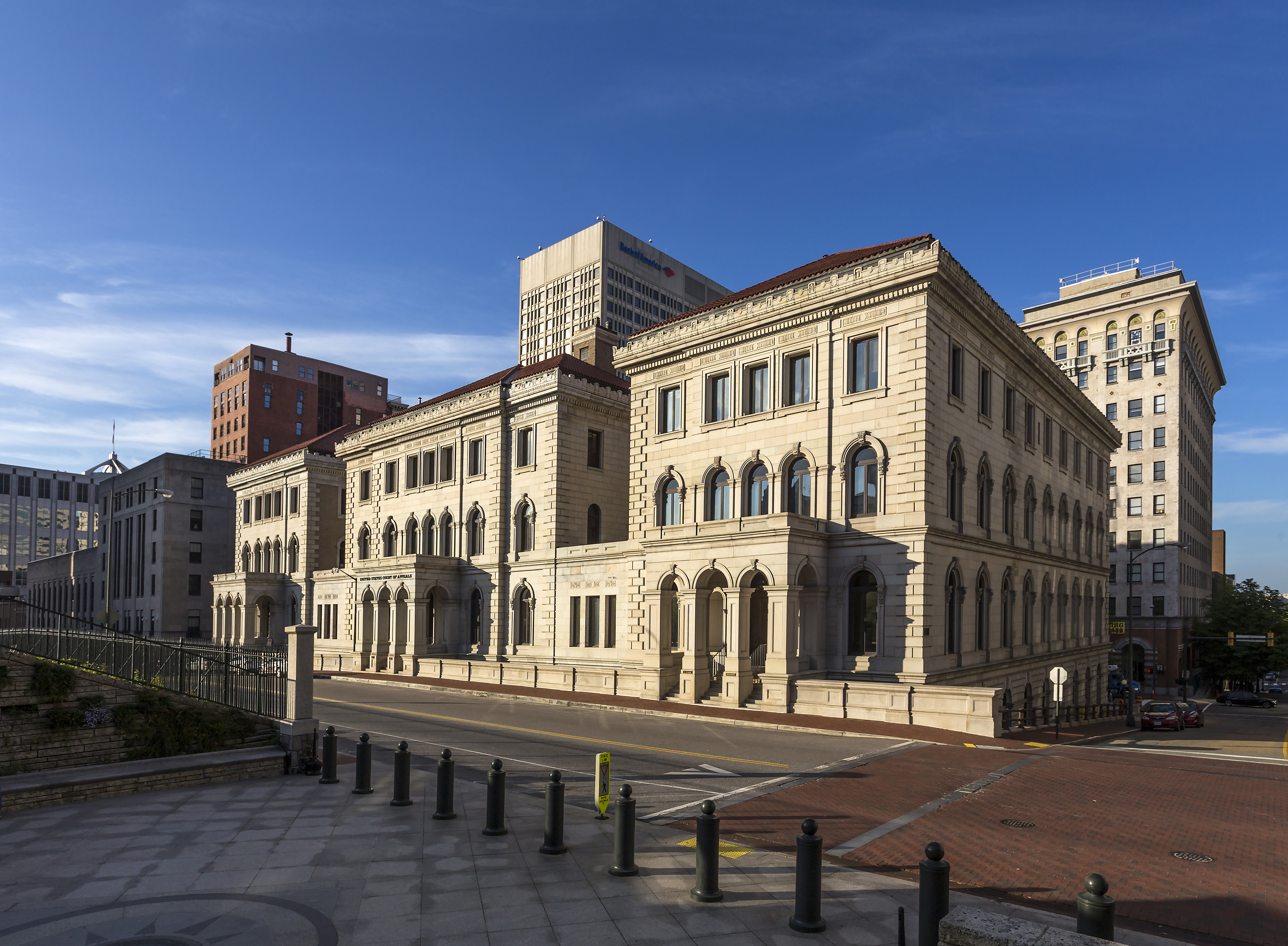|
Lamparello V. Falwell
''Lamparello v. Falwell'', 420 F.3d 309 (4th Cir., 2005), was a legal case heard by the United States Court of Appeals for the Fourth Circuit concerning allegations of cybersquatting and trademark infringement. The dispute centered on the right to use the domain name fallwell.com, and provides discussion on cybersquatting as it applies to criticism of a trademark. In 1999, Christopher Lamparello created a website to respond to and criticize the anti-homosexual statements by the American Christian evangelical preacher Jerry Falwell. Lamparello's website was located at fallwell.com (note the misspelling). Believing that there was confusing similarity between the domain name and Falwell's own name, domain name, and other trademarks, Falwell and his ministries attempted to legally block Lamparello from using the mark "fallwell" and transfer the ownership of the domain name to Falwell. The initial decisions (ruled by the National Arbitration Forum in 2003 and the United States D ... [...More Info...] [...Related Items...] OR: [Wikipedia] [Google] [Baidu] |
United States Court Of Appeals For The Fourth Circuit
The United States Court of Appeals for the Fourth Circuit (in case citations, 4th Cir.) is a federal court located in Richmond, Virginia, with appellate jurisdiction over the district courts in the following districts: * District of Maryland *Eastern District of North Carolina * Middle District of North Carolina *Western District of North Carolina * District of South Carolina * Eastern District of Virginia * Western District of Virginia * Northern District of West Virginia *Southern District of West Virginia The court is based at the Lewis F. Powell Jr. United States Courthouse in Richmond, Virginia. With 15 authorized judgeships, it is mid-sized among the 13 United States Courts of Appeals. __TOC__ Current composition of the court : Vacancies and pending nominations List of former judges Chief judges Succession of seats ... [...More Info...] [...Related Items...] OR: [Wikipedia] [Google] [Baidu] |
Gripe Site
A gripe site is a type of website that is dedicated to critique or complaint about a specific subject. The subject could be a person, place, politician, corporation, institution, or something else. A gripe site may aim to offer constructive criticism to the subject (like an open letter), or may simply lampoon the subject. See also * royaldutchshellplc.com ReferencesRise of the gripe site Prospect magazine ''Prospect'' is a monthly British general-interest magazine, specialising in politics, economics and current affairs. Topics covered include British and other European, and US politics, social issues, art, literature, cinema, science, the medi ..., February 2007 External linkscybergriping.com [...More Info...] [...Related Items...] OR: [Wikipedia] [Google] [Baidu] |
Amicus Brief
An ''amicus curiae'' (; ) is an individual or organization who is not a party to a legal case, but who is permitted to assist a court by offering information, expertise, or insight that has a bearing on the issues in the case. The decision on whether to consider an ''amicus'' brief lies within the discretion of the court. The phrase is legal Latin and the origin of the term has been dated to 1605–1615. The scope of ''amici curiae'' is generally found in the cases where broad public interests are involved and concerns regarding civil rights are in question. In American law, an ''amicus curiae'' typically refers to what in some other jurisdictions is known as an intervenor: a person or organization who requests to provide legal submissions so as to offer a relevant alternative or additional perspective regarding the matters in dispute. In the American courts, the amicus may be referred to as an ''amicus'' brief. In other jurisdictions, such as Canada, an ''amicus curiae'' is a ... [...More Info...] [...Related Items...] OR: [Wikipedia] [Google] [Baidu] |
Public Citizen Litigation Group
Public Citizen Litigation Group is a public interest law firm in the United States.The group is the litigation arm of the non-profit consumer advocacy organization Public Citizen. Its attorneys work on cases involving health and safety regulation, consumer rights, separation of powers, access to the courts, class actions, open government, and the First Amendment. In a 2008 study, professor Richard Lazarus of Georgetown's Supreme Court Institute describes an "elite private sector group of attorneys who are dominating advocacy before the Court to an extent not witnessed since the early nineteenth century." In stark contrast with this specialization among the corporate bar, there is comparatively little in-house Supreme Court expertise among non-profit public interest groups, legal aid organizations, public defenders, or plaintiffs' firms. "The principal exception is Public Citizen’s Supreme Court practice," writes Lazarus, "which has long provided high-quality assistance in the p ... [...More Info...] [...Related Items...] OR: [Wikipedia] [Google] [Baidu] |
Switzerland
). Swiss law does not designate a ''capital'' as such, but the federal parliament and government are installed in Bern, while other federal institutions, such as the federal courts, are in other cities (Bellinzona, Lausanne, Luzern, Neuchâtel, St. Gallen a.o.). , coordinates = , largest_city = Zürich , official_languages = , englishmotto = "One for all, all for one" , religion_year = 2020 , religion_ref = , religion = , demonym = , german: Schweizer/Schweizerin, french: Suisse/Suissesse, it, svizzero/svizzera or , rm, Svizzer/Svizra , government_type = Federalism, Federal assembly-independent Directorial system, directorial republic with elements of a direct democracy , leader_title1 = Federal Council (Switzerland), Federal Council , leader_name1 = , leader_title2 = , leader_name2 = Walter Thurnherr , legislature = Fe ... [...More Info...] [...Related Items...] OR: [Wikipedia] [Google] [Baidu] |
Geneva
Geneva ( ; french: Genève ) frp, Genèva ; german: link=no, Genf ; it, Ginevra ; rm, Genevra is the List of cities in Switzerland, second-most populous city in Switzerland (after Zürich) and the most populous city of Romandy, the French-speaking part of Switzerland. Situated in the south west of the country, where the Rhône exits Lake Geneva, it is the capital of the Canton of Geneva, Republic and Canton of Geneva. The city of Geneva () had a population 201,818 in 2019 (Jan. estimate) within its small municipal territory of , but the Canton of Geneva (the city and its closest Swiss suburbs and exurbs) had a population of 499,480 (Jan. 2019 estimate) over , and together with the suburbs and exurbs located in the canton of Vaud and in the French Departments of France, departments of Ain and Haute-Savoie the cross-border Geneva metropolitan area as officially defined by Eurostat, which extends over ,As of 2020, the Eurostat-defined Functional Urban Area of Geneva was made up of 9 ... [...More Info...] [...Related Items...] OR: [Wikipedia] [Google] [Baidu] |
World Intellectual Property Organization
The World Intellectual Property Organization (WIPO; french: link=no, Organisation mondiale de la propriété intellectuelle (OMPI)) is one of the list of specialized agencies of the United Nations, 15 specialized agencies of the United Nations (UN). Pursuant to the 1967 Convention Establishing the World Intellectual Property Organization, WIPO was created to promote and protect intellectual property (IP) across the world by cooperating with countries as well as international organizations. It began operations on 26 April 1970 when the convention entered into force. The current Director General is Singaporean Daren Tang, former head of the Intellectual Property Office of Singapore, who began his term on 1 October 2020. WIPO's activities include hosting forums to discuss and shape international IP rules and policies, providing global services that register and protect IP in different countries, resolving transboundary IP disputes, helping connect IP systems through uniform stand ... [...More Info...] [...Related Items...] OR: [Wikipedia] [Google] [Baidu] |
Uniform Domain Name Dispute Resolution Policy
The Uniform Domain-Name Dispute-Resolution Policy (UDRP) is a process established by the Internet Corporation for Assigned Names and Numbers (ICANN) for the resolution of disputes regarding the registration of internet domain names. The UDRP currently applies to all generic top level domains (.com, .net, .org, etc.), some country code top-level domains, and to all new generic top-level domains (.xyz, .online, .top, etc.). Historical background When ICANN was first set up, one of the core tasks assigned to it was "The Trademark Dilemma", the use of trade marks as domain names without the trademark owner's consent. By the late 1990s, such use was identified as problematic and likely to lead to consumers being misled. In the United Kingdom, the Court of Appeal described such domain names as "an instrument of fraud". One of the first steps was that Member States commissioned the United Nations World Intellectual Property Organization (WIPO) to produce a report on the tension between ... [...More Info...] [...Related Items...] OR: [Wikipedia] [Google] [Baidu] |
ICANN
The Internet Corporation for Assigned Names and Numbers (ICANN ) is an American multistakeholder group and nonprofit organization responsible for coordinating the maintenance and procedures of several databases related to the namespaces and numerical spaces of the Internet, ensuring the network's stable and secure operation. ICANN performs the actual technical maintenance work of the Central Internet Address pools and DNS root zone registries pursuant to the Internet Assigned Numbers Authority (IANA) function contract. The contract regarding the IANA stewardship functions between ICANN and the National Telecommunications and Information Administration (NTIA) of the United States Department of Commerce ended on October 1, 2016, formally transitioning the functions to the global multistakeholder community. Much of its work has concerned the Internet's global Domain Name System (DNS), including policy development for internationalization of the DNS, introduction of new ge ... [...More Info...] [...Related Items...] OR: [Wikipedia] [Google] [Baidu] |
Typosquatting
Typosquatting, also called URL hijacking, a sting site, or a fake URL, is a form of cybersquatting, and possibly brandjacking which relies on mistakes such as typos made by Internet users when inputting a website address into a web browser. Should a user accidentally enter an incorrect website address, they may be led to any URL (including an alternative website owned by a cybersquatter). The typosquatter's URL will usually be one of five kinds, all ''similar to'' the victim site address: *A common misspelling, or foreign language spelling, of the intended site *A misspelling based on a typographical error *A plural of a singular domain name *A different top-level domain: (i.e. .com instead of .org) *An abuse of the Country Code Top-Level Domain (ccTLD) (.cm, .co, or .om instead of .com) Similar abuses: *Combosquatting - no misspelling, but appending an arbitrary word that appears legitimate, but that anyone could register. *Doppelganger domain - omitting a period or inserting ... [...More Info...] [...Related Items...] OR: [Wikipedia] [Google] [Baidu] |
Parody
A parody, also known as a spoof, a satire, a send-up, a take-off, a lampoon, a play on (something), or a caricature, is a creative work designed to imitate, comment on, and/or mock its subject by means of satiric or ironic imitation. Often its subject is an original work or some aspect of it (theme/content, author, style, etc), but a parody can also be about a real-life person (e.g. a politician), event, or movement (e.g. the French Revolution or 1960s counterculture). Literary scholar Professor Simon Dentith defines parody as "any cultural practice which provides a relatively polemical allusive imitation of another cultural production or practice". The literary theorist Linda Hutcheon said "parody ... is imitation, not always at the expense of the parodied text." Parody may be found in art or culture, including literature, music, theater, television and film, animation, and gaming. Some parody is practiced in theater. The writer and critic John Gross observes in his ''Oxford Boo ... [...More Info...] [...Related Items...] OR: [Wikipedia] [Google] [Baidu] |




